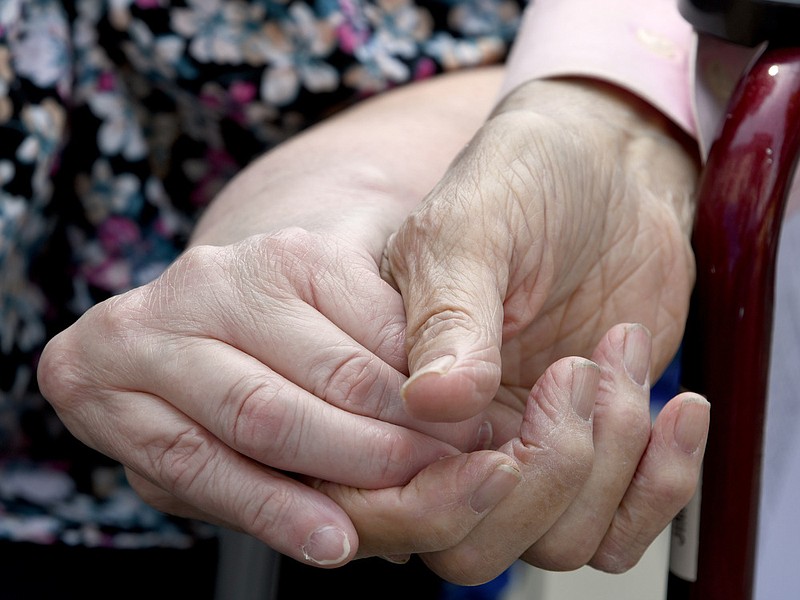It must be the fact that it's an election year.
That may account for the criticism Tennessee Gov. Bill Lee is getting for proclaiming Friday as a "day of prayer, humility and fasting."
Some of the gripes suggests the proclamation is simply an election-year stunt. Others center on the tired arguments that the governor is violating the state constitution, that what he's doing is a breach of the national constitutional understanding of the separation of church and state, or that it is a slap in the face to those who proclaim they have no religion (i.e., do not pray).
In fact, Lee has signed a similar proclamation every year he's been office, taking care to make it nonsectarian and to make it understood that what it calls for is voluntary.
In 2019, the first year the governor was in office, a number of churches chose to hold special events to mark the occasion. It's not clear whether that will be the case this year.
Lee said at the time that it was the Tennesseans he'd met across the state who said they were praying for him and for first lady Maria Lee that prompted the first proclamation.
"[P]roviding an opportunity for people to come together and to unite around asking for blessing for our state and for the people of this state is valuable," the Republican told reporters in 2019. "It's historically something that presidents and governors have done throughout history."
One such person lives in the White House, is the head of a radical Democratic administration and still has proclaimed days of prayer.
Earlier this year, for instance, in announcing the 2022 National Day of Prayer, President Joe Biden said, "Throughout our history, prayer has been an anchor for countless Americans searching for strength and wisdom in times of struggle and sharing hope and gratitude in seasons of joy. In public reflections on life's many blessings and in quiet moments during life's most difficult trials, Americans of nearly every background and faith have turned to prayer for comfort and inspiration. Prayer is a sacred right protected by free speech and religious liberty enshrined in our Constitution, and it continues to lift our spirits as we navigate the challenges of our time."
(The National Day of Prayer has been marked since 1952, when Biden's Democratic predecessor Harry Truman signed the celebration into law.)
The first president, George Washington, actually started such a tradition during his first year in office, declaring Thursday, Nov. 26, 1789, as a day of public thanksgiving and prayer. The country's annual celebration of Thanksgiving has continued from that first proclamation.
So, for Lee, an election year stunt? No. He is running for re-election, and this is his fourth such proclamation. Other states have similar observances.
As to the proclamation violating the state constitution? No. In a four-page opinion that predated Lee, written in 2012, Democrat-appointed state Attorney General Robert E. Cooper wrote, "No, this Office believes that legislation requiring the governor to designate a certain date as 'Tennessee's Day of Prayer' could not be successfully challenged in court as being unconstitutional."
As to breaching the separation of church and state in the federal Constitution? No. Citers of the First Amendment are always quick to quote the first half of the right: "Congress shall make no law respecting an establishment of religion." But they conveniently forget the second half: "... or prohibiting the free exercise thereof."
As to whether it's a slap in the face for those who adhere to no religion, or do not pray? No. It has been clear from the first that Lee's invitation to participate in a day of prayer, humility and fasting is voluntary.
Indeed, following Lee's first proclamation, he said this: "If [opponents] have a sense that it's not appropriate for them, then they shouldn't participate."
The governor, as in previous years, tweeted a photo of himself signing the proclamation and attached a copy of the proclamation.
The responses, as expected, ranged from praise for Lee to vilification of him for everything from "treachery against the children of tennessee" to forcing "little girls" "to have their rapist's baby" to ignoring poverty and crime to wanting "people to go hungry."
In America on Friday, fortunately, we have the ability to choose. We can pray and fast and thank God for our state and all it offers us, we can complain about suggesting that people engage in such an observance, we can eat, drink and be merry and take for granted what we have in Tennessee, or we can do none of the above.
Surely, for our ability to choose, at least, we all can agree to be thankful.
